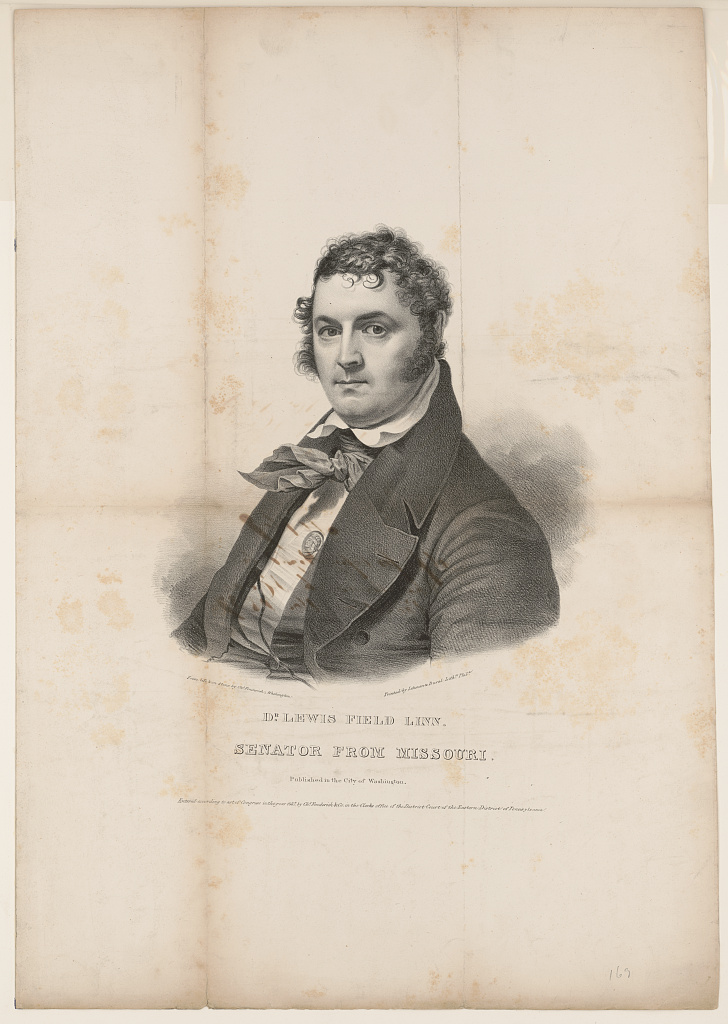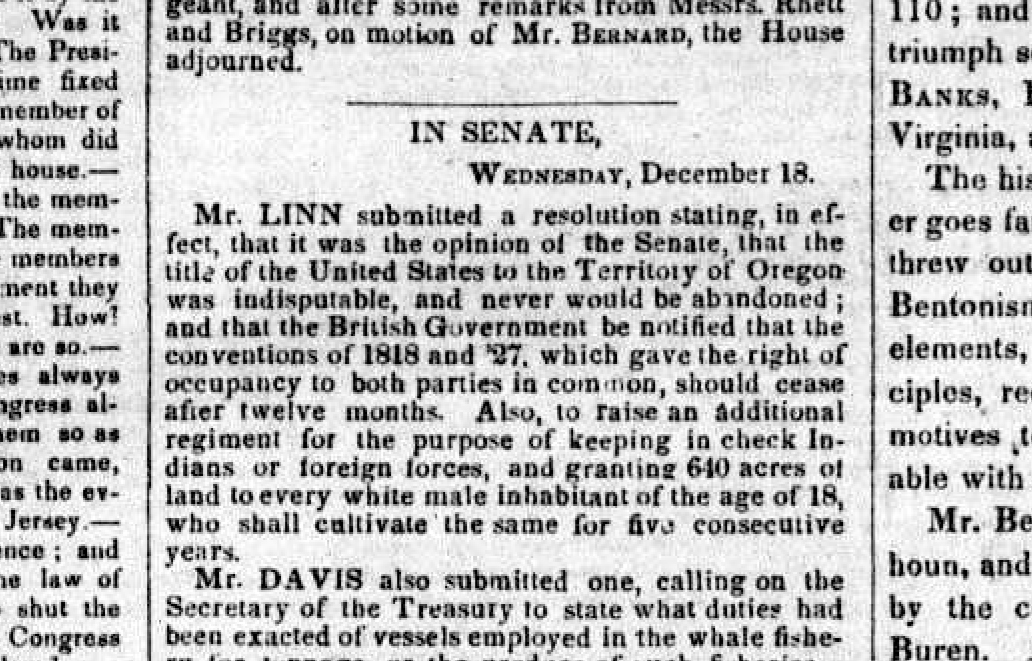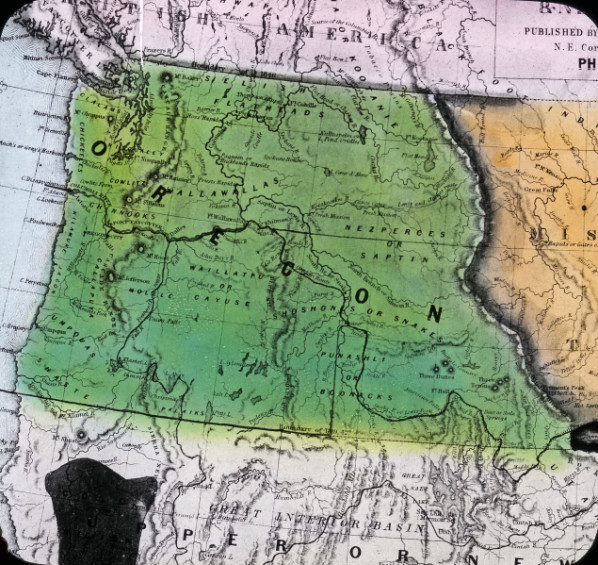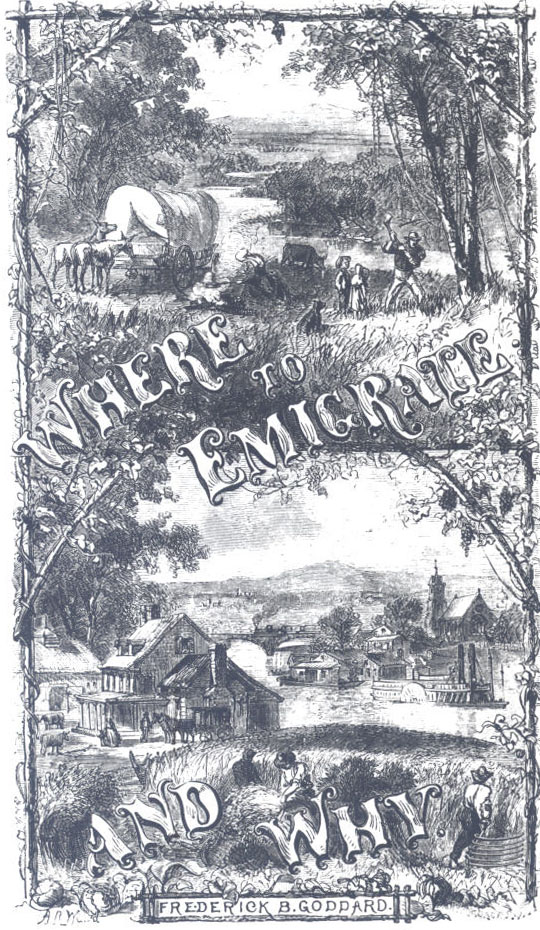Senator Lewis F. Linn of Missouri was a tireless advocate for the United States occupation of the Oregon Country during his tenure in the U.S. Senate, beginning in 1837 until his death in 1843. His proposals for land grants to American resettlers inspired many of the early migrations on the Oregon Trail. Two early wagon train leaders, Peter Burnett and Morton McCarver, named the town they founded Linnton (now part of northwest Portland) in honor of Senator Linn, and the Oregon Provisional Legislature created Linn County in December 1847, one of four counties named for Linn (others are in Missouri, Kansas, and Iowa) to recognize him as a prominent champion of western expansion.
Linn was born in Louisville, Kentucky, on November 5, 1796. An orphan at the age of twelve, he lived with his half-brother in Ste. Genevieve, Missouri. In his teens he studied to become a doctor and served as a surgeon in the War of 1812. Following the war, he practiced medicine in Ste. Genevieve for twenty years. When U.S. Senator Alexander Buckner died in 1833, Linn was appointed to the seat, which he would hold for ten years.
Like many Missourians, including fellow U.S. Senator Thomas Hart Benton, Linn was enthusiastic about resettlement of the Oregon Country. In 1837, he took up the so-called Oregon Question, the long-standing diplomatic discussion over the division of the Oregon Country by the United States and Great Britain. He introduced a resolution, which the Senate passed, requesting that President Van Buren provide “any correspondence that may have taken place between this Government and foreign powers” concerning the Oregon Country. When the president reported that nothing had changed since the joint occupation agreement with Great Britain, which had been renewed in 1827, Linn introduced a bill in February 1838 to establish the Oregon Territory, construct a fort on the Columbia River, and establish a port of entry. He recommended that $50,000 be appropriated for the effort.
The Senate approved the creation of a committee, chaired by Linn, to study the Oregon Question. The committee delivered a lengthy report in June 1838 touting the many advantages of the Oregon Country and claiming that it was possible to travel there without great difficulty, even for “delicate females.” With a review of the history of American exploration in the region, the report made the case for a U.S. claim to the Oregon Country, at least to the 49th parallel, the present-day border with Canada. The report was widely read by the general public and did much to stoke what was known as Oregon Fever. That December, Linn again proposed to authorize the occupation of the Oregon Country, a bill that also failed to gain support. A month later, he presented Jason Lee’s petition asking the U.S. government to protect American citizens in the region. The petition was tabled.
He tried again in December 1839. This time his resolution called for land grants of 640 acres for any white male inhabitant of the territory over eighteen years old who cultivated the land for five years. The resolution failed, but the idea of land grants created great interest and anticipation among the public. He introduced a new bill in April 1840; again, it failed. In August 1841, he called on the president to give notice to Great Britain to end the joint occupation agreement, and in December he reintroduced his occupation bill.
Linn made one last push for his Oregon bill in late 1842. That bill included provisions to appoint Indian agents for the Oregon Country and extend civil and criminal law and jurisdiction of the courts of the Iowa Territory to the Pacific Ocean. He modified the 640-acre land grant provisions of earlier bills to add 160 additional acres for wives and each child under eighteen. On January 26, 1843, he spoke in support of the bill for two hours in Senate debate. The bill passed the Senate in early February in a 24–22 vote, but then failed in the House.
Linn died unexpectedly at his home in Missouri on October 3, 1843, and Missouri Senator Benton took up the cause of Oregon resettlement. But the victory of Linn’s bill in the Senate had done much to heighten Oregon Fever, including the Great Migration of 1843 and subsequent migrations over the Oregon Trail.
-
![From Life & On Stone, by Charles Fenderich, 1837.]()
Sen. Lewis F. Linn.
From Life & On Stone, by Charles Fenderich, 1837. Courtesy Library of Congress -
![]()
Madisonian (Washington City), December 19, 1839.
Courtesy Library of Congress
Related Entries
-
![Oregon Question]()
Oregon Question
“The Oregon boundary question,” historian Frederick Merk concluded, “wa…
-
![Oregon Trail]()
Oregon Trail
Introduction In popular culture, the Oregon Trail is perhaps the most …
Related Historical Records
Map This on the Oregon History WayFinder
The Oregon History Wayfinder is an interactive map that identifies significant places, people, and events in Oregon history.
Further Reading
Husband, Michael B. "Senator Lewis F. Linn and the Oregon Question.'' Missouri Historical Review 66 (October 1971): 1-19.
Shippee, Lester Burrell. "Linn and the Oregon Territory." Quarterly of the Oregon Historical Society 19 (December 1918): 283-305.






